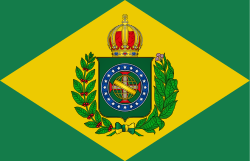This article needs additional citations for verification .(February 2024) |
| 1873 in Brazil |
|---|
| Flag |
 20 stars (1871–89) |
| Timeline of Brazilian history |
| Empire of Brazil |
| Year of Constitution: 1824 |
Events in the year 1873 in Brazil .
This article needs additional citations for verification .(February 2024) |
| 1873 in Brazil |
|---|
| Flag |
 20 stars (1871–89) |
| Timeline of Brazilian history |
| Empire of Brazil |
| Year of Constitution: 1824 |
Events in the year 1873 in Brazil .